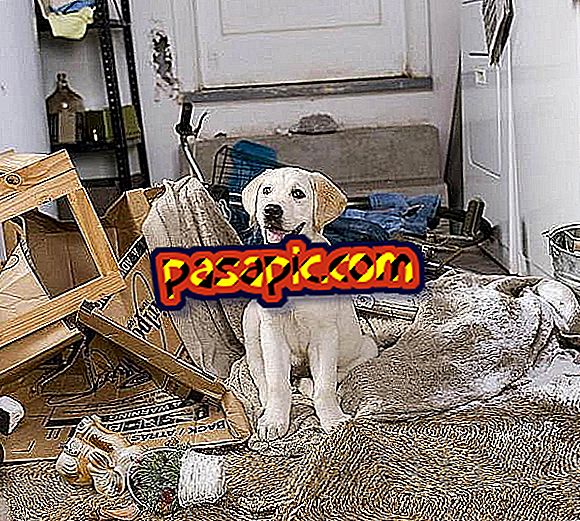What to do after fighting with a friend

Fighting with a friend can be one of the most painful experiences we have to experience sometime in life. Sometimes, the argument appears out of nowhere and takes you by surprise; other times, however, you feel the tension in friendship and you know that it is difficult to stop what is coming. If you have had a fight with a friend, do not be discouraged, from time to time it is normal to fight with a friend, the important thing is to know how to act once the storm has passed to try to recover friendship. Keep reading this article and discover what to do after fighting with a friend.
Calm down and relax
The first thing you should do when you have had an important discussion with your friend is to get some space . You may need a day or two to calm down and see the situation from a more objective point of view. Do not let it go much more than that, because too much time will really make the problem grow.
The period of reflection depends on the individuals involved; If you and your friend can leave feelings of anger and anger aside easily, pass the discussion stage and try to solve the conflict. If the fight, on the contrary, has filled you with anger, you will need some more time to get a new perspective and be able to speak things calmly and with the right mood.
Put yourself in the place of your friend
After a few days, contact your friend and ask him to talk about what has happened. There is a possibility that your friend is not yet ready to speak and if that is the case, here are some things you can say:
- I want to be sure you understand my position.
- Your friendship matters to me.
- I want to hear you.
If you are still angry, you will need to make the effort and tell your friend that you are going to listen to what he has to say, this is the key to moving forward after a fight with a friend. You will have to remain silent while repeating some of the same things that I already told you, but try to listen with a more open mind. Think if you can see things from your friend's perspective before issuing a hasty judgment or opinion; the article How to be a more empathetic person can help you.
Sometimes people get frustrated when they feel they are not being heard, so it is important that you pay attention to what they say. Do not interrupt and focus on listening to everything your friend is saying.
It is important that you meet your friend in a private place, where nobody interrupts you and both of you can speak with total freedom.

Advice on sending an email
Sometimes it is easier to send an email to your friend after a discussion instead of calling him on the phone. This is fine as long as you take the time to speak in person in the future; and is that to really remedy things, it is necessary to listen to what each of you have to say.
An email can be difficult to interpret, since it will not have clues and that inflection in the voice that helps to understand the feelings of the other. Having said this, however, email is a good option to help break the ice after an argument. When sending the message, keep some things in mind:
- Start the email expressing your desire to resolve things. Do not reiterate the point that led to the fight. The purpose of the email sent for the first time after a discussion is simply to fill the gap, do not continue with your argument through it.
- Use a little humor Make fun of yourself or the situation, rather than talking about the problem you're trying to solve.
- End the email with a specific proposal to meet. Say something like, "What if we talk about it after work on Friday?" Instead of, "Let's discuss this at some point."
Once the mail is sent, do not let a lot of time go by without talking to your friend in person or by phone. If you try to resolve the situation through email alone, things will probably stay in nothing and you may lose a friend.
After listening, you have to talk
After having the opportunity to fully listen to what your friend has to say, then you can communicate your own points of view and feelings. However, this is not always necessary. Sometimes, your friend shows you a different perspective and gives a new twist to your argument, so you do not feel the need to "tell your version."
If after your friend talks to you, you still do not understand, it's time to ask if he can listen to you. At this point, both of you must be calm enough to listen to you. When talking about your concerns, do not accuse and talk about how you feel.
If it is clear that your friend does not want to resolve things, it will mean that your friendship was not as strong as you thought. It is possible that your friend has had underlying negative thoughts about your friendship for some time now, and that the fight you just had is just an excuse to get away from you permanently. In the following article you can find good tips to overcome a broken friendship.



